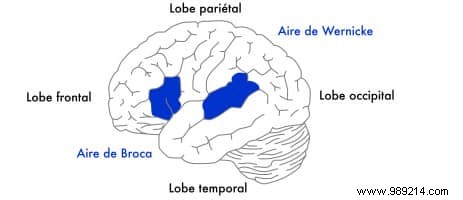The family of famous actor Bruce Willis has just announced that he is ending his career due to a diagnosis of aphasia. It is a neurological disorder that affects language and speech. Symptoms depend on the severity of the disorder and the location of the lesion.
After appearing in dozens of films, Bruce Willis is ending his career at the age of 67. His family has just announced on social media that the actor is suffering from "cognitive" problems due to a recent diagnosis of aphasia.
Overall, aphasia is a term for someone who has lost the ability to use or understand their language. It occurs when part of the brain is damaged. Symptoms may appear suddenly after a stroke or head injury, or gradually following a brain tumor or progressive disease.
There are two broad categories of aphasia called fluent and non-fluent . The most common type of non-fluent aphasia, also called "Broca's aphasia", occurs when part of the frontal lobe is damaged. An affected person will then tend to express themselves in short sentences and to remove certain words from his language . Usually, that same person can also only understand part of what others are saying. Finally, since this type of aphasia is the result of damage to the front part of the brain, this person may also suffer from weakness or paralysis on the right side of the body.
People with fluent aphasia, also known as "Wernicke's aphasia", experience extensive damage to Wernicke's area in the left temporal lobe. Here, rather than omitting words and speaking in short sentences, a diagnosed person will speak long and confusing sentences , often adding unnecessary or even made-up words. Again, these people also tend to have difficulty understanding what other people are saying.
However, it is currently unknown what type of aphasia Bruce Willis suffers from.

Note that it is urgent to consult when the person has difficulty speaking to the point that others do not understand him or difficulty understanding a sentence to the point that the person does not understand what others are saying. Reading or writing problems should also challenge. A brain scan then identifies which parts of the brain are damaged.
People with aphasia can often relearn how to speak or at least communicate to some degree. It all ultimately depends on the severity of the disorder. This is usually done through speech therapy should be started as soon as possible, as soon as symptoms appear. Some promising drugs to improve blood flow to the brain, improve the brain's ability to recover, or help replace neurotransmitters are also currently being investigated.